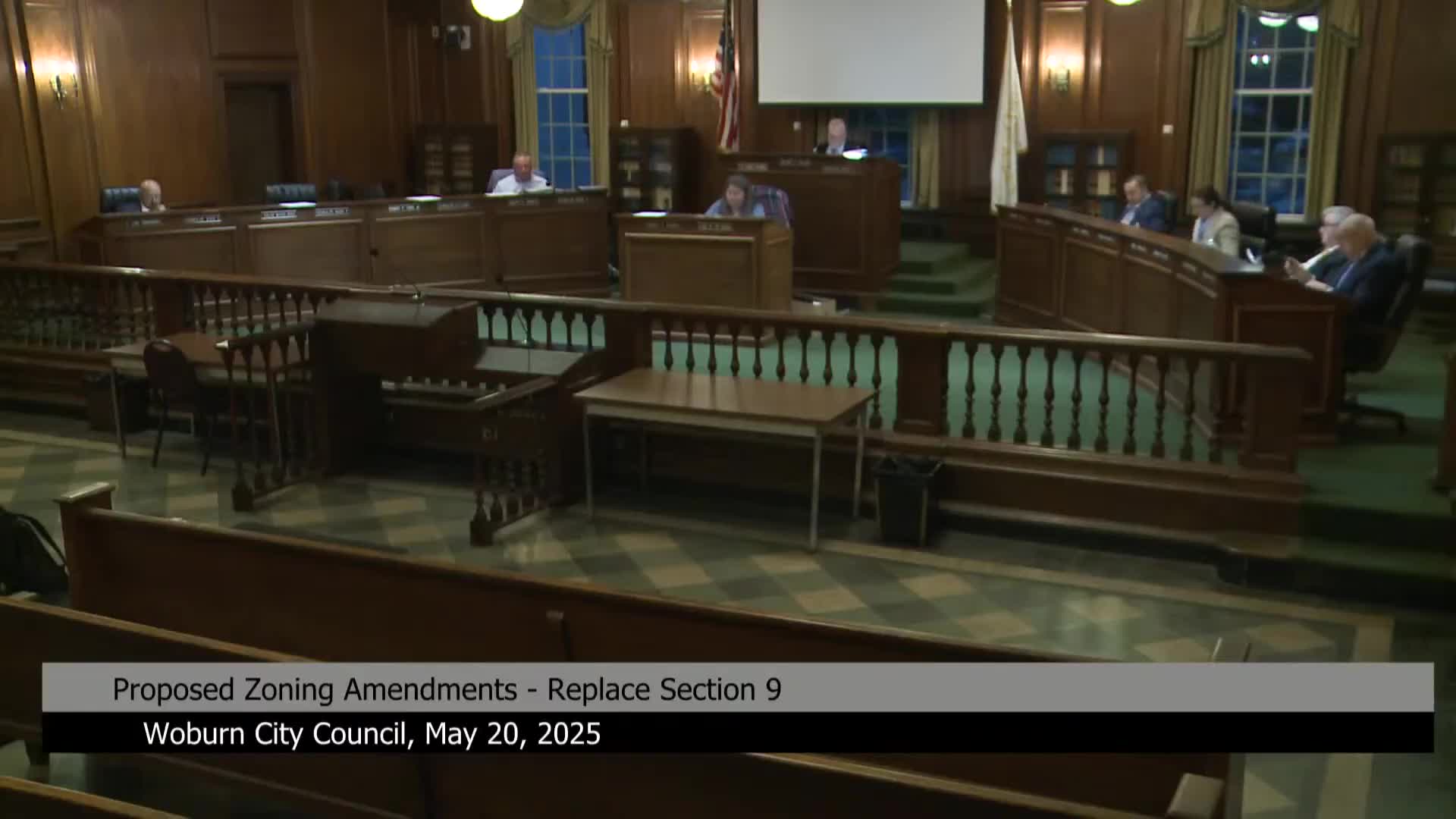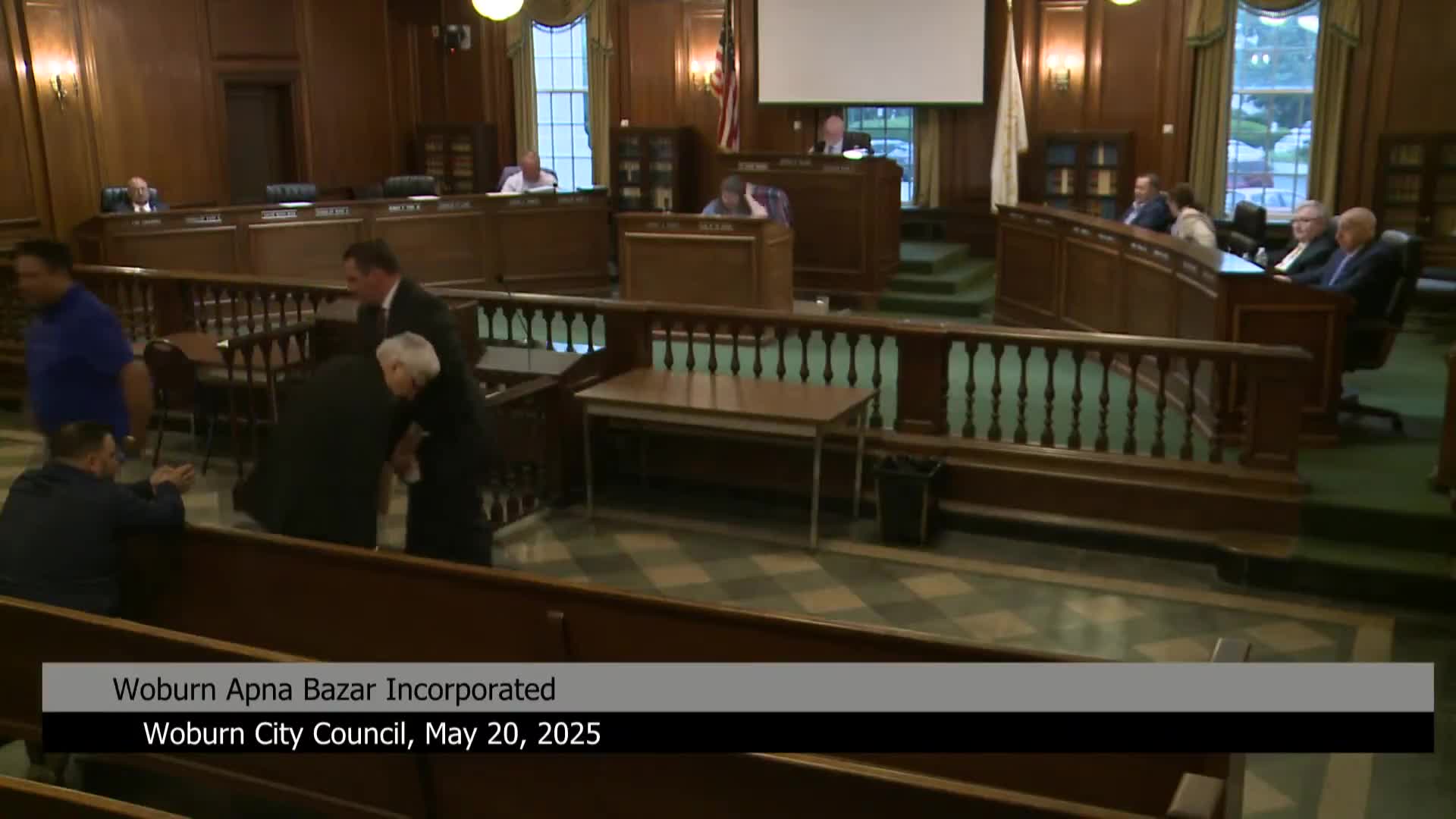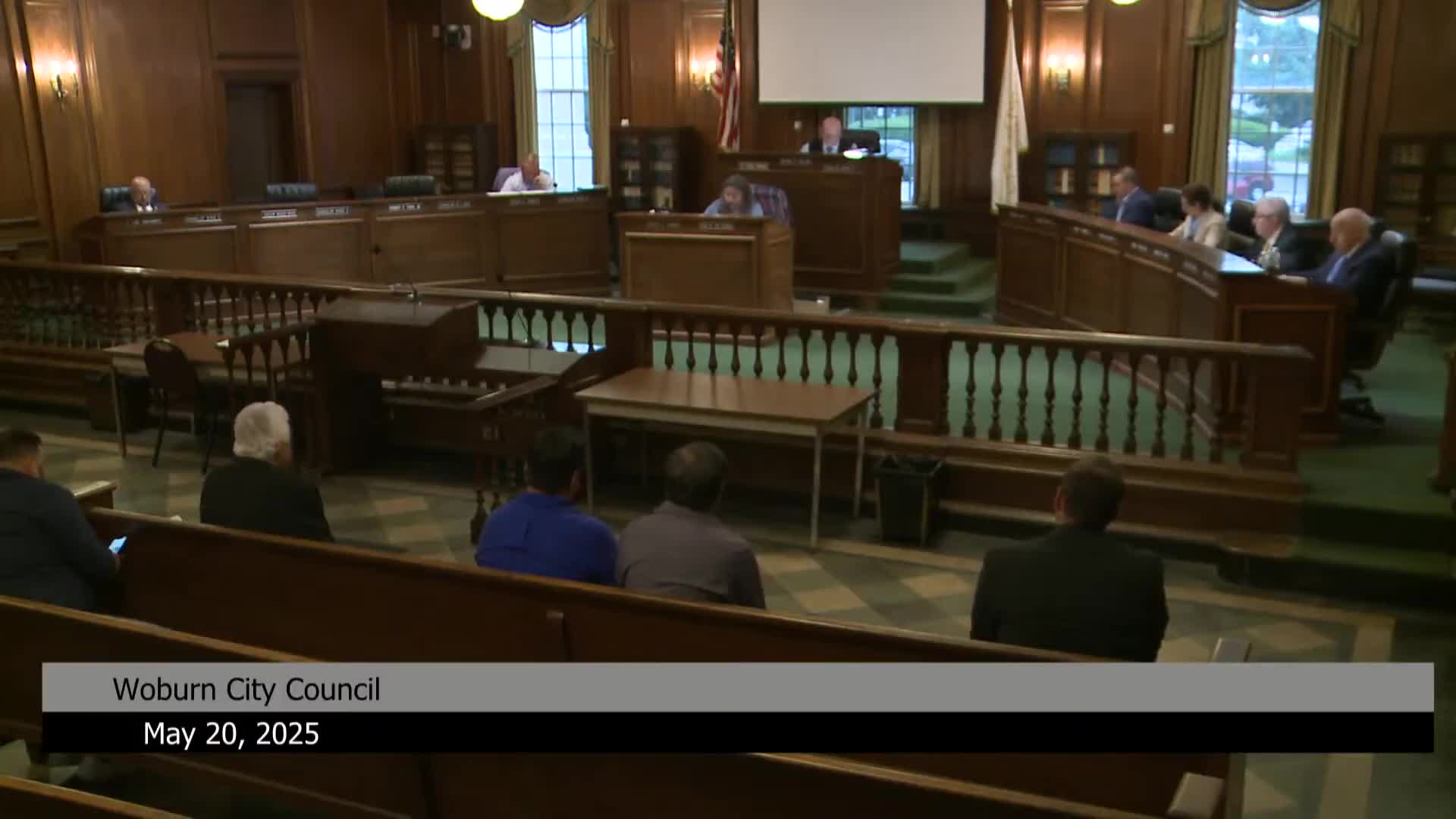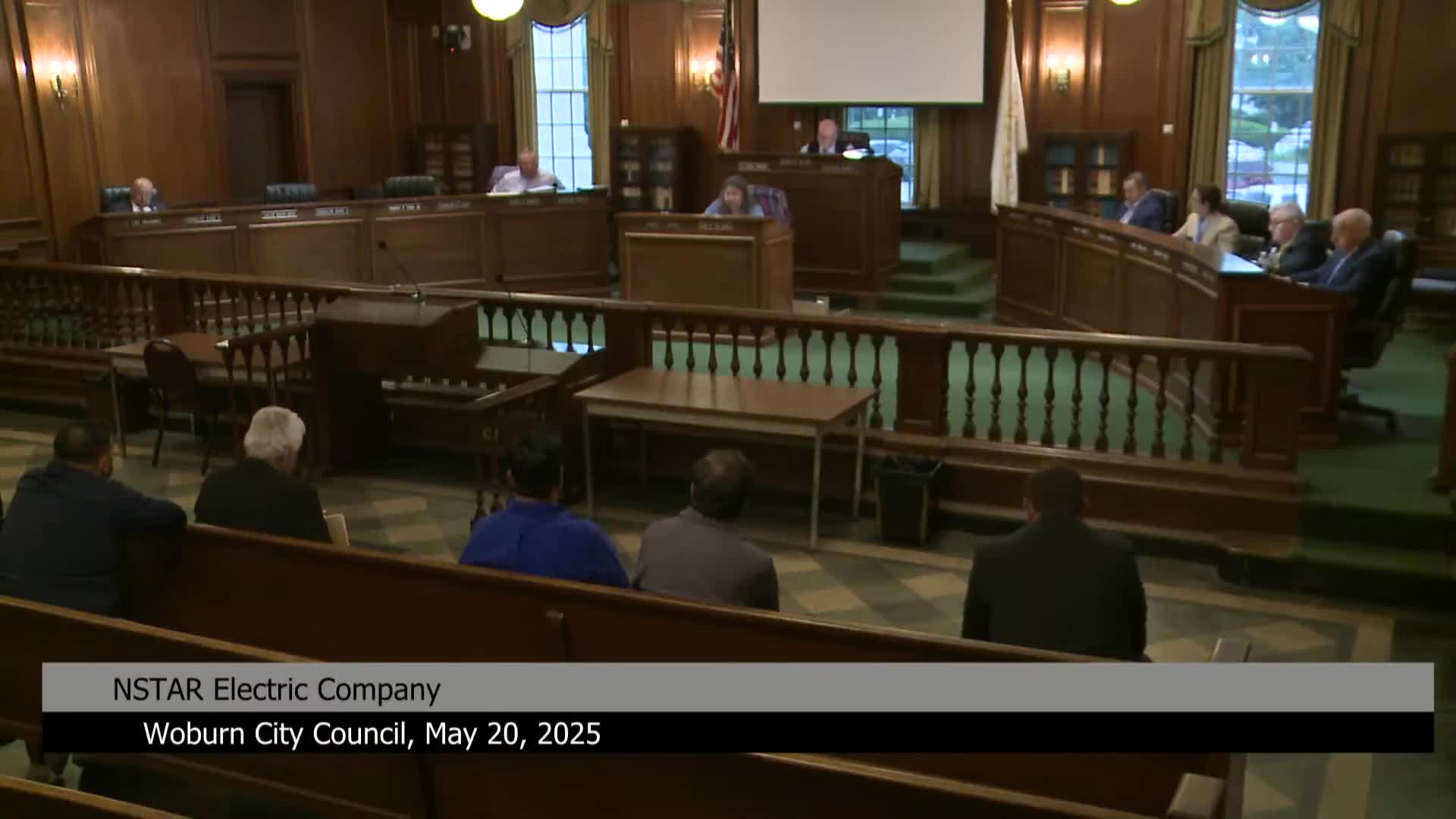Article not found
This article is no longer available. But don't worry—we've gathered other articles that discuss the same topic.

Woburn council adopts accessory dwelling unit ordinance as amended amid debate over owner‑occupancy and state guidance

Veer Inc. seeks 7‑month test site at 45 Industrial Parkway; council continues hearing amid noise and safety conditions

Woburn mayor presents $191.0 million FY2026 proposed budget, cites maintenance-year focus

